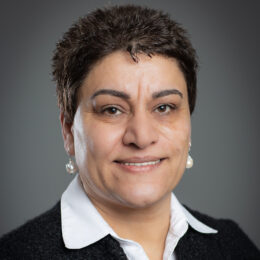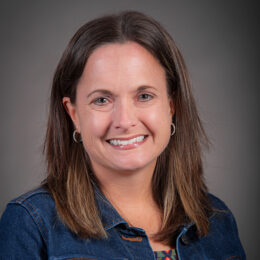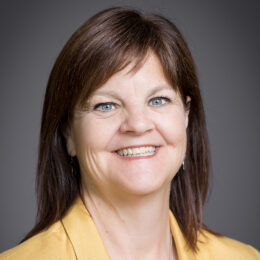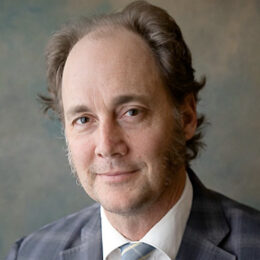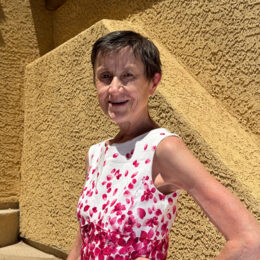Secondary Education: Biology
Prepare to inspire the next generation of scientists with a biology education degree from Manchester University. This program blends rigorous biology coursework with hands-on teaching experience, equipping future educators to thrive in middle and high school classrooms. Graduate ready to make a meaningful impact in today’s evolving education landscape.

Biology Education Degree to Prepare You for Teaching Grades 5–12
Manchester University’s Secondary Education in Biology degree combines a rigorous foundation in biology with hands-on classroom training to prepare future educators for teaching grades 5–12. Students gain in-depth knowledge in biology while developing the pedagogical and classroom management skills required for licensure.
Program Information:
Major | BS
- 49 Credit Hours Biology
- Required Education Coursework for Licensure
Location
- North Manchester
Why Choose MU for Secondary Education: Biology?

Supportive Licensure Pathways
Early & Extensive Classroom Experience
Interdisciplinary Preparation
What You Can Do with Your Secondary Education: Biology Degree
Middle School Biology Teacher
Teach foundational biology concepts to students in grades 5–8 classrooms.
High School Biology Teacher
Instruct students in Advanced Biology concepts in grades 9-12 classrooms.
STEM Curriculum Specialist
Design and improve interdisciplinary programs for secondary school systems.
Education Outreach Coordinator
Develop science education programs for Science Museums, Zoos, or Nonprofits

Average Starting Salary for Secondary Education Biology Degree Holders
Graduates entering the teaching profession in Indiana can expect competitive starting pay. According to the National Education Association, the average starting salary for teachers in Indiana is around $45,007.

How the Secondary Education: Biology Program Supports Your Growth
Early Classroom Experience and Fieldwork
Accreditation and Outcomes: CAEP Accountability Measures
Manchester University’s Teacher Education Program is accredited by the Council for the Accreditation of Educator Preparation (CAEP) and meets four key accountability measures:
- Measure 1: Completer Effectiveness and P–12 Student Learning Observation and survey data show that Manchester graduates demonstrate instructional effectiveness and contribute to student growth.
- Measure 2: Employer Satisfaction and Stakeholder Involvement Employers express strong satisfaction with graduates’ preparedness. Feedback from school leaders informs ongoing program development.
- Measure 3: Candidate Competency at Completion High graduation rates and licensure exam success reflect the academic strength and teaching readiness of program completers.
- Measure 4: Ability to Be Hired in Area of Licensure 96% of recent graduates secure employment in their licensed teaching field within six months of graduation.
Supportive Faculty and Mentorship
Curriculum Design and Licensure Preparation
Career Placement Support and Alumni Success
Meet the Faculty
You Might Also Be Interested In These Programs

FAQs About Manchester University’s Secondary Eduction: Biology Degree
What teaching licenses will I qualify for after completing the program?
How early will I get classroom experience in the program?
What career support or placement services are available after graduation?
Manchester University’s education program boasts a 96% placement rate for graduates entering the teaching field within six months of graduation. This success is supported by a comprehensive suite of career development services tailored to education majors. Students receive help with résumé writing, interview preparation, and job search strategies. The university also hosts annual education job fairs, where students can connect directly with school districts seeking qualified high school biology teachers and other educators. Faculty members and placement coordinators maintain strong partnerships with regional schools, helping you secure student teaching assignments and full-time employment upon graduation. Additionally, alumni often return to mentor current students, creating a robust network of support. Whether you plan to teach biology in Indiana or out of state, Manchester’s career services help ensure you’re prepared for every step—from licensure to classroom leadership.
Secondary Education: Biology Learning Outcomes
Program Learning Outcomes
The mission statement of the Manchester University Department of Education is to bridge theory and practice, preparing students for professional careers that promote individual well-being, community engagement, and social justice.
Learning Goals: Graduates of our program will
- bridge theory and practice by applying their knowledge and skills in semester long internships or student teaching placements
- assess learning and development or the effectiveness of organizational programs designed for children, adolescents, and/or adults
- establish professional and reciprocal relationships with others invested in the emotional, physical, and cognitive well-being of others with whom they work
- create positive and caring environments for the development and academic progress of children, adolescents, and/or adults
- reflect on their role in the field of education as a means for bringing about social justice
InTASC Standards
1. Learner Development
The teacher understands how learners grow and develop, recognizing that patterns of learning and development vary individually within and across the cognitive, linguistic, social, emotional, and physical areas, and designs and implements developmentally appropriate and challenging learning experiences.
2. Learning Differences
The teacher uses understanding of individual differences and diverse cultures and communities to ensure inclusive learning environments that enable each learner to meet high standards.
3. Learning Environments
The teacher works with others to create environments that support individual and collaborative learning, and that encourage positive social interaction, active engagement in learning, and self-motivation.
4. Content Knowledge
The teacher understands the central concepts, tools of inquiry, and structures of the discipline(s) he or she teaches and creates learning experiences that make the discipline accessible and meaningful for learners to assure mastery of the content.
5. Application of Content
The teacher understands how to connect concepts and use differing perspectives to engage learners in critical thinking, creativity, and collaborative problem solving related to authentic local and global issues.
6. Assessment
The teacher understands and uses multiple methods of assessment to engage learners in their own growth, to monitor learner progress, and to guide the teacher’s and learner’s decision making.
7. Planning for Instruction
The teacher plans instruction that supports every student in meeting rigorous learning goals by drawing upon knowledge of content areas, curriculum, cross-disciplinary skills, and pedagogy, as well as knowledge of learners and the community context.
8. Instructional Strategies
The teacher understands and uses a variety of instructional strategies to encourage learners to develop deep understanding of content areas and their connections, and to build skills to apply knowledge in meaninful ways.
9. Professional Learning and Ethical Practice
The teacher engages in ongoing professional learning and uses evidence to continually evaluate his/her practice, particularly the effects of his/her choices and actions on others (learners, families, other professionals, and the community), and adapts practice to meet the needs of each learner.
10. Leadership and Collaboration
The teachers seeks appropriate leadership roles and opportunities to take responsibility for student learning, to collaborate with learners, families, colleagues, other school professionals, and community members to ensure learner growth, and to advance the profession.
Non-Discrimination in the Admission Process
Manchester University is committed to non-discrimination in campus life. The University does not discriminate on the basis of national origin, ancestry, race, color, age, sex, gender identity or expression, sexual orientation, familial status, religion, disability or veteran status in admissions or any area of campus life, including its educational programs, scholarships and loan awards, residence life programs, athletic programs, extracurricular programs, promotion and tenure policies and practice, and alumni affairs.
Manchester University is committed to carry out the provisions of Section 504 of the Rehabilitation Act of 1973 and the Americans With Disabilities Act, which provide for accessibility of University programs to the physically disabled.






